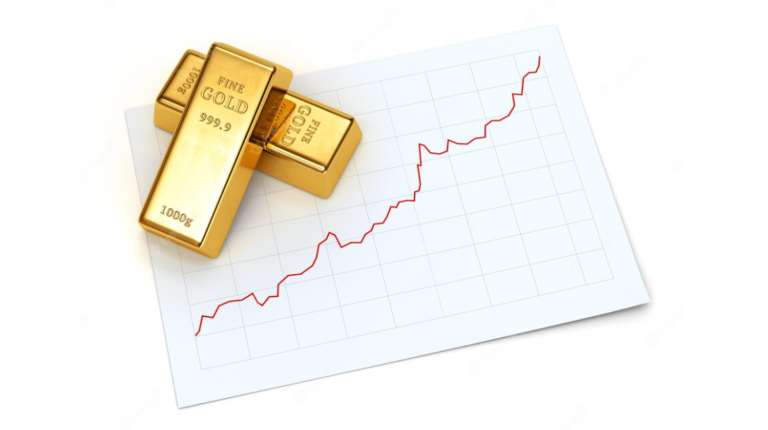Gold Buying Guide
The Ultimate Gold Buying Guide: How to Make Smart Investments and Maximize Your Profits
Are you looking to invest in gold to grow your wealth? Look no further! In this comprehensive guide, we will walk you through everything you need to know about gold buying guide, making smart investments, and maximizing your profits.
Investing in gold can be a lucrative venture, but it requires knowledge and strategy. That’s why we are here to help you make informed decisions about gold buying guide and maximize your investment returns.
With this ultimate gold buying guide, we will cover the historical significance of gold as a safe haven asset, the various ways to invest in gold, and the factors to consider before making your purchases. We will provide you with expert tips on how to identify reputable gold sellers and avoid scams. Whether you are a beginner or a seasoned investor, this guide will equip you with the knowledge and confidence you need to navigate the gold market successfully.
Don’t miss out on your opportunity to make smart investments in gold. Get ready to unlock the secrets of gold buying and start maximizing your profits today!
On This Page

Understanding the value of gold
Gold has been valued for centuries, and its significance as a safe haven asset cannot be overstated. Throughout history, gold has retained its value, making it a reliable store of wealth. Unlike paper currencies, gold is not subject to inflation or economic fluctuations, making it an attractive investment option.
Gold’s value is influenced by various factors, including supply and demand dynamics, geopolitical events, and economic stability. Understanding these factors is crucial for making informed investment decisions. By closely monitoring these indicators, you can identify potential opportunities to buy or sell gold at favorable prices.
Investing in gold allows you to diversify your portfolio and hedge against the volatility of other assets. Gold has a negative correlation to the stock market, meaning that when stocks decline, gold prices tend to rise. This inverse relationship makes gold an excellent asset for balancing your investment portfolio.
In addition to its financial value, gold also holds cultural and aesthetic significance. It has been used in jewelry and decorative arts for centuries, further adding to its allure. The timeless appeal of gold makes it a valuable asset that transcends generations.
Selling gold and maximizing your profits
When the time comes to sell your gold investments, it’s important to know the gold buying guide and approach the process strategically to maximize your profits. Here are some tips for selling gold effectively:
1. Research the market: Before selling your gold, research the current market conditions to determine the optimal time to sell and use the Gold Calculator to calculate the current price of gold. Keep an eye on gold prices, supply and demand dynamics, and any relevant geopolitical or economic events that may impact the market.
2. Get multiple quotes: Obtain quotes from multiple gold buyers to ensure you are getting a fair price for your gold. Approach reputable dealers and compare their offers. Be wary of buyers who offer significantly lower prices or charge excessive fees.
3. Consider selling in stages: If you have a large quantity of gold to sell, consider selling it in stages rather than all at once. By selling in smaller quantities over time, you can potentially take advantage of price fluctuations and maximize your overall profits.
4. Evaluate fees and commissions: Take into account any fees or commissions charged by the buyer. These costs can vary significantly between different buyers, so choose a buyer who offers competitive rates and transparent pricing.
5. Maintain documentation: Keep detailed records of your gold purchases and sales. This documentation is essential for tax purposes and can provide evidence of the authenticity and origin of your gold. It also helps track your investments and evaluate your overall performance.
6. Consider alternative selling options: Apart from selling to gold buyers or dealers, you may explore other selling options such as online marketplaces, auctions, or private sales. These alternatives may offer higher prices or provide a broader range of potential buyers.
7. Consult with professionals: If you are unsure about the selling process or want to maximize your profits, consider consulting with professionals such as financial advisors, appraisers, or precious metals experts. Their expertise can help you navigate the selling process and make informed decisions.
By following these tips and adopting a strategic approach, you can sell your gold investments at the right time and maximize
Remember to periodically review and update your security measures to adapt to changing circumstances. Regularly inspect your storage arrangements and evaluate the effectiveness of your security systems. Stay vigilant and take necessary precautions to safeguard your gold investments.
Different forms of gold investments
When it comes to investing in gold, you have several options to choose from. Each form of investment has its own advantages and considerations, catering to different investment goals and risk tolerance levels.
1. Physical gold:
This is the most traditional form of investing in gold, where you purchase physical bullion or coins. Owning physical gold gives you direct ownership and control over your investment. However, storing and protecting physical gold requires careful consideration. You can store it at home, in a safe deposit box, or with a trusted custodian.
2. Gold ETFs:
Exchange-traded funds (ETFs) offer a convenient way to invest in gold without the hassle of storing physical gold. These funds track the price of gold and can be bought and sold on stock exchanges. Gold ETFs provide liquidity and flexibility, making them suitable for investors looking for exposure to gold without the logistical challenges.
3. Gold mining stocks:
Investing in gold mining companies gives you indirect exposure to the gold market. As the price of gold rises, mining companies’ profitability increases, potentially leading to higher stock prices. However, investing in mining stocks comes with additional risks, such as operational challenges and geopolitical factors that can impact mining activities.
4. Gold futures and options:
For sophisticated investors, gold futures and options contracts offer leveraged exposure to gold prices. These derivative instruments allow you to speculate on the future price of gold without owning the physical metal. However, trading futures and options requires advanced knowledge and carries higher risks.
Factors influencing gold prices
Several factors influence the price of gold, and understanding these dynamics is essential for making informed investment decisions. Here are some key factors to consider:
1. Supply and demand: The balance between gold supply and demand plays a significant role in determining its price. When demand exceeds supply, prices tend to rise, and vice versa. Factors such as mining production, central bank buying, and jewelry demand can impact supply and demand dynamics.
2. Inflation and economic stability: Gold is often viewed as a hedge against inflation and economic uncertainties. When inflation rises or the economy faces turmoil, investors flock to gold as a safe haven asset. Economic indicators, such as GDP growth, interest rates, and currency fluctuations, can affect gold prices.
3. Geopolitical events: Geopolitical tensions and global events can have a profound impact on gold prices. Wars, political instability, and trade disputes can create uncertainties that drive investors towards gold. Monitoring global events can provide insights into potential price movements.
4. Currency fluctuations: Gold is traded in US dollars, and fluctuations in currency exchange rates can influence its price. When the value of the US dollar weakens, gold prices typically rise, as it becomes more affordable for investors holding other currencies.
5. Investor sentiment: Market sentiment and investor behavior can impact short-term fluctuations in gold prices. Fear and optimism in the financial markets can drive demand for gold as investors seek safe havens or pursue riskier assets.
Understanding these factors and keeping a close eye on market trends can help you identify gold buying guide and opportunities to buy or sell gold at favorable prices. However, it’s important to note that no one can predict with certainty how gold prices will behave in the future. Conduct thorough research and consult with financial professionals before making investment decisions.
How to buy physical gold
Buying physical gold requires careful consideration and attention to detail. Here are some steps to follow when purchasing physical gold:
1. Research reputable sellers: Before making any purchases, thoroughly research and identify reputable gold sellers. Look for dealers who have a long-standing reputation, positive customer reviews, and transparent pricing policies. Avoid sellers with excessive markups or questionable practices.
2. Choose the right form of gold: Decide whether you want to buy gold bars or coins. Gold bars typically offer the lowest premiums over the spot price, making them more cost-effective for larger investments. Coins, on the other hand, may have higher premiums but offer the benefit of divisibility and collectability.
3. Verify authenticity: To avoid counterfeit gold, always verify the authenticity of the gold you are purchasing. Look for recognized hallmarks, certifications, and assay certificates that guarantee the purity and quality of the gold. Conducting business with reputable sellers greatly reduces the risk of buying fake or impure gold.
4. Consider storage options: Determine how you will store and protect your physical gold. If you choose to store it at home, invest in a secure safe or vault. Alternatively, you can opt for a safe deposit box at a bank or store your gold with a trusted custodian. Each storage option has its own advantages and considerations, so choose the one that aligns with your preferences and risk tolerance.
5. Understand the pricing: Familiarize yourself with the pricing mechanisms for physical gold, including the spot price, premiums, and markups. The spot price represents the current market value of gold, while premiums and markups cover the costs associated with producing and distributing the gold. Compare prices from different sellers to ensure you are getting a fair deal.
By following these steps and conducting due diligence, you can confidently purchase physical gold and add it to your investment portfolio. Remember to consult with financial professionals for personalized advice and to align your gold investments with your overall financial goals.
Gold ETFs and other investment vehicles
If owning physical gold is not your preference, there are alternative investment vehicles that provide exposure to the gold market. One such option is Gold ETFs, which offer the convenience of trading gold on stock exchanges without the need for physical possession.
Gold ETFs are open-ended funds that track the price of gold. When you invest in a Gold ETF, you are essentially buying shares that represent a certain amount of gold. The value of these shares rises and falls with the price of gold.
One of the main advantages of Gold ETFs is their liquidity. They can be bought and sold on stock exchanges just like any other stock, providing investors with flexibility and ease of trading. This makes Gold ETFs suitable for short-term trading or for investors who want exposure to gold without the logistical challenges of owning physical gold.
Another advantage of Gold ETFs is their transparency. The fund’s holdings are publicly disclosed, allowing investors to track the amount of gold held by the ETF. This transparency provides assurance that the Gold ETF is backed by physical gold.
Apart from Gold ETFs, there are other investment vehicles that provide exposure to the gold market. These include gold mutual funds, gold mining stocks, and gold futures and options. Each investment vehicle has its own set of advantages and considerations, catering to different investment goals and risk tolerance levels.
When choosing an investment vehicle, it’s important to consider factors such as fees, liquidity, risk level, and investment horizon. Conduct thorough research, consult with financial professionals, and align your investment choices with your overall financial goals.
Tips for buying gold from reputable sources
When it comes to buying gold, it’s crucial to ensure that you are dealing with reputable sellers. Here are some tips to help you identify trustworthy sources:
1. Research and reputation: Thoroughly research the reputation of the seller before making any purchases. Look for established dealers who have been in business for a considerable amount of time. Check online reviews, ratings, and customer testimonials to gauge the seller’s credibility.
2. Certifications and accreditations: Look for certifications and accreditations that verify the authenticity and quality of the gold being sold. Reputable sellers often provide assay certificates or certifications from recognized organizations that guarantee the purity and weight of the gold.
3. Transparent pricing: Avoid sellers who have excessive markups or hidden fees. Transparent pricing is a sign of a reputable seller. Compare prices from different sellers to ensure you are getting a fair deal.
4. Physical inspection: If possible, physically inspect the gold before making a purchase. Look for recognized hallmarks, such as the purity and weight markings, which indicate the authenticity of the gold. Examine the packaging and ensure it is sealed and tamper-proof.
5. Secure shipping and insurance: If you are purchasing gold online or from a remote seller, ensure that they offer secure shipping and insurance. Gold is a valuable asset, and it should be shipped in a secure and insured manner to protect against loss or damage during transit.
6. Customer support: Choose sellers who provide excellent customer support and are responsive to your queries. A reputable seller will be transparent, provide timely updates, and address any concerns or issues you may have.
By following these tips and conducting due diligence, you can easily know gold buying tips and minimize the risk of dealing with fraudulent sellers and ensure a smooth gold buying experience. Remember, it’s always better to be cautious and verify the authenticity of the gold before making any financial commitments.
Storing and protecting your gold investments
Once you’ve purchased physical gold or invested in gold ETFs, it’s crucial to store and protect your investments properly. Here are some considerations for storing and safeguarding your gold:
1. Home storage: If you choose to store your gold at home, invest in a high-quality safe or vault. Make sure the safe is securely anchored and hidden from prying eyes. Install a reliable security system to protect your home and deter potential burglars.
2. Safe deposit box: Many banks offer safe deposit boxes for rent, providing a secure and convenient storage option for your gold. Safe deposit boxes are usually located in highly secure areas of the bank, offering protection against theft and natural disasters. However, keep in mind that you won’t have immediate access to your gold outside of banking hours.
3. Third-party storage: If you prefer not to store your gold at home or in a safe deposit box, you can opt for third-party storage. There are reputable companies that specialize in storing and safeguarding precious metals. These facilities offer high-level security measures, including 24/7 surveillance, insurance coverage, and audit procedures.
4. Insurance: Regardless of where you choose to store your gold, it’s important to have insurance coverage. Consult with your insurance provider to ensure your gold investments are adequately covered against theft, loss, or damage. Keep detailed records and photographs of your gold for insurance purposes.
5. Diversification and multiple locations: Consider diversifying your storage locations to minimize the risk of loss. Spreading your gold holdings across different storage facilities or geographic locations can provide an added layer of protection. However, ensure that each location is secure and reputable.





